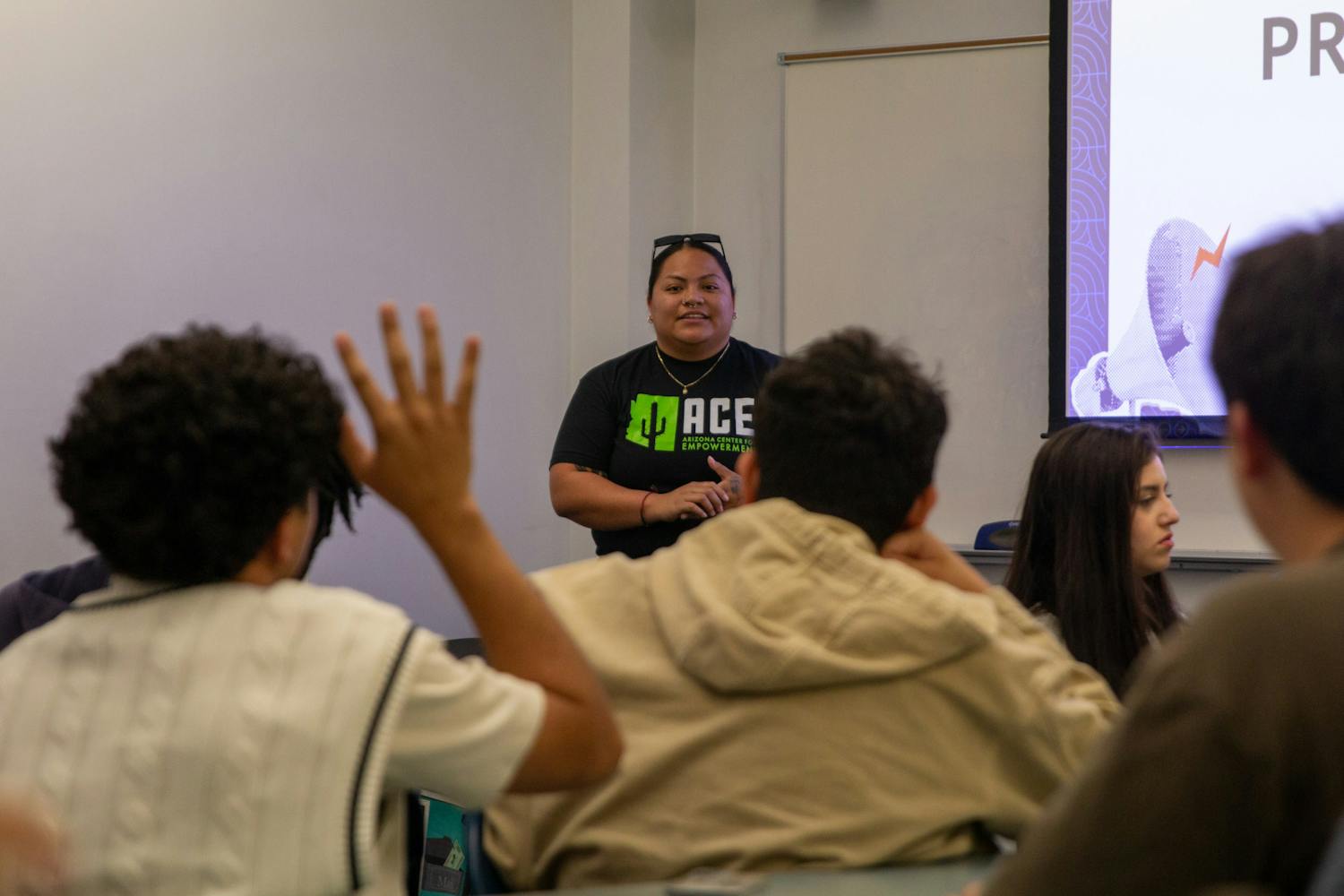Some may view the company Trader Joe's as caring and sweet, offering a friendly environment to buy delicious sourdough bread and fresh produce, and some may view the company Red Bull as energetic and adventurous, offering sugary energy drinks that will keep you awake.
ASU professor Blake Ashforth and a team of researchers are studying this anthropomorphisation of businesses, determing why and how people apply human qualities to companies.
In the article "’My Company is Friendly,’ ‘Mine's a Rebel’: Anthropomorphism and Shifting Organizational Identity from ‘What’ to ‘Who’,” Blake Ashforth, lead author of the study and professor at W.P. Carey School of Business, focuses on organizational identity.
Ashforth said in an email that when people anthropomorphize businesses it means that they often think of their organizations as if they were people, which could include everything from isolated personality traits to full-blown personalities.
Ashforth said that people apply anything else that may define a person to business, such as values, beliefs and even demographic characteristics.
“Apple is young and cool, Harley-Davidson is a rebel and Southwest Airlines is friendly,” Ashforth said. “We anthropomorphize objects automatically and often non-consciously as a way of making sense of our world and feeling a social connection to it. We often anthropomorphize our possessions, the products we buy and even the weather.”
Beth Schinoff, second author of the study and assistant professor at Boston College, has been interested in social psychological phenomena her whole life.
She said in an email that the idea that people see their work organizations as humanlike has been an implicit assumption in research in organizational behavior that writing a paper solely on the topic seemed pretty natural, and was somewhat surprised that this assumption hasn't been better explored.
“How we cast our organizations as human-like determines how we feel, think and act toward them,” Schinoff said. “If I see my organization as caring, I'm likely to feel warmly towards it, perhaps experience feelings of comfort and safety as I do my work, and maybe even reciprocate the caring back to my organization.”
Ashforth said that when people see an organization as human, they act toward the organization as they would a person with those attributes.
“So, if we see our employer as loyal and caring, we’re likely to reciprocate that loyalty and caring by being a good employee and going above and beyond the call of duty,” Ashforth said. “Conversely, if we see our employer as just another greedy corporation, we’re far less likely to invest ourselves in the company and to be a good organizational citizen.”
Ashforth said that as a result of personalizing an employer, people become much more emotionally involved. This could be a good or bad thing depending on the image the employer emits.
There is very little research on this particular subject, so the team looked at different marketing studies on brand personalities. They also examined studies on how people anthropomorphize different technology, along with other anthropomorphism studies and applied this research into organizational settings and management.
Schinoff said that anthropomorphism also helps individuals make sense of organizations.
“Humans have anthropomorphized entities forever,” Schinoff said. “We see faces in clouds, humanize deities and attribute human characteristics to things like technology. Doing so aids us in knowing how to relate to the world. I really believe that, without anthropomorphism to hang our hats on, it would be very hard to relate to our work organizations.”
Schinoff said that being cognizant of how individuals are anthropomorphizing an organization is important and organizations should pay attention to how their human attributions may or may not align with how organizational leaders want people to see the organization.
Ashforth said that he believes there are multiple ways corporations can take this research and apply it to their brand to better their companies.
He said that these companies should think about what kind of persona they likely impute to their company, along with why and what are they doing to convey a positive or negative persona.
“One abusive or even indifferent manager can permanently taint individuals’ perception of ‘who’ the company is,” Ashforth said.
Ashforth added that companies should think about what human-like persona they would prefer to convey, whether that be friendly, knowledgeable, caring etc., then think about how they can live those traits in a daily sense.
“Select future employees who exemplify those traits, and train and reward them for demonstrating those traits,” Ashforth said. “Above all, don’t say you are one thing as a company and then act as if you are another. For example, many companies say they are a happy family but then lay employees off at the first signs of a downturn. Because individuals see their organization in human-like terms, they will feel betrayed by such behavior.”
Reach the reporter at jlmyer10@asu.edu or follow @jessiemy94 on Twitter.
Like The State Press on Facebook and follow @statepress on Twitter.




